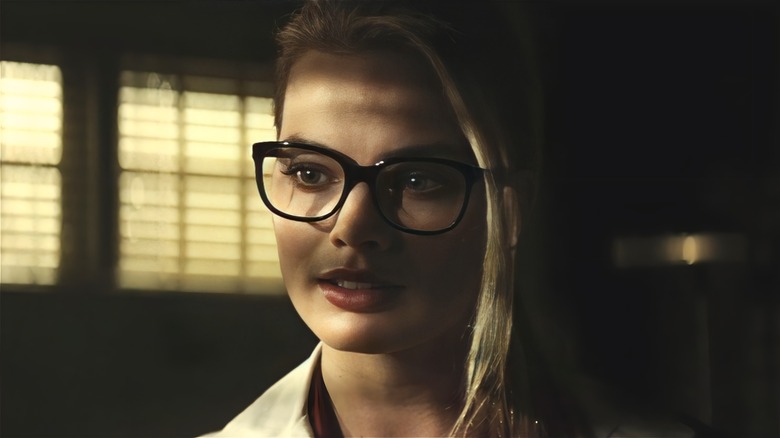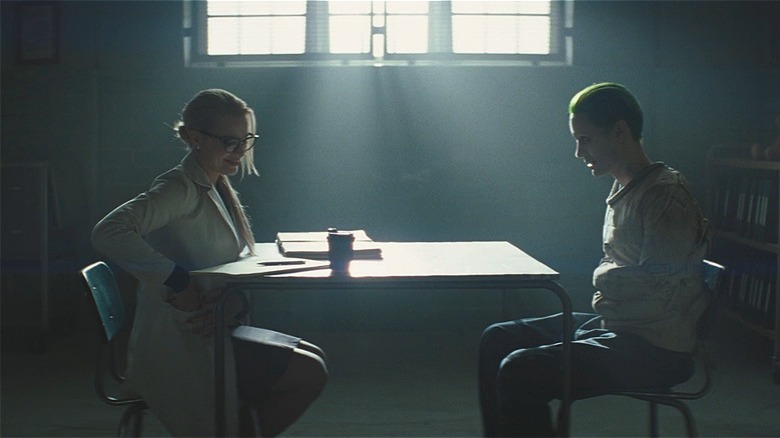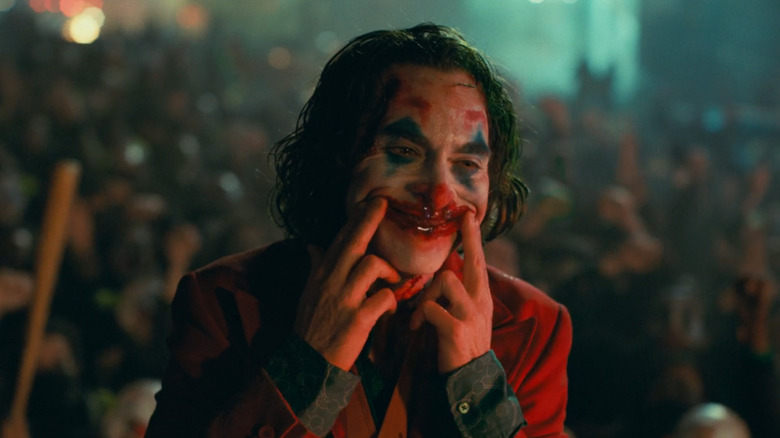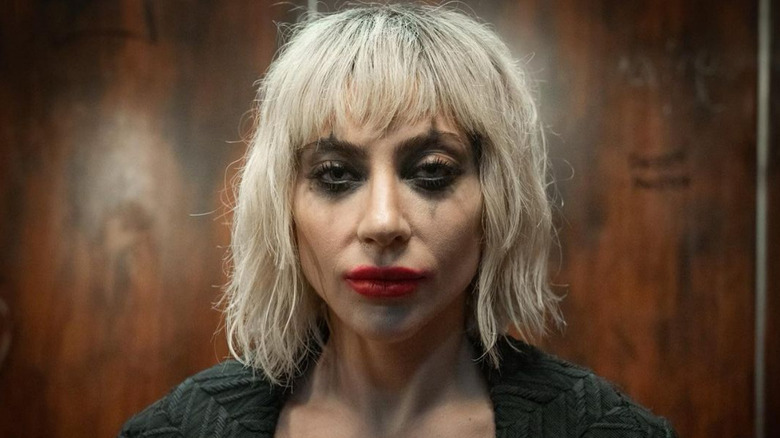How Joker 2 Can Avoid Suicide Squad's Harley Quinn Mistake
The dynamic between DC Comics' Joker and Harley Quinn has become the stuff of legend. What kind of legend, really, depends on who is telling the story, but one thing's almost always certain: These two characters are intrinsically connected in some way.
Whether it's a loving relationship, an abusive one, or a (somewhat) wholesome dynamic, Joker and Harley Quinn are two pieces of the same puzzle. Since making her first appearance in "Batman: The Animated Series" in 1992, Quinn's backstory has been fleshed out significantly; she proved to be such a breakout character with audiences that she rose from the ranks of a one-off to become an integral part of Batman's Rogues' Gallery.
Fans have seen varying iterations of the character, many a far cry from her original harlequin persona; even within "The Animated Series," she went from a mere lackey to the best friend of Poison Ivy, slowly asserting herself as an individual unbeholden to the Clown Prince of Crime. From live-action (the "Birds of Prey" movie and TV series, the "Suicide Squad" films) to animation ("The Batman, "DC Super Hero Girls," "Justice League Action") to her own series ("Harley Quinn") and even podcasts ("Batman: The Audio Adventures" and "Harley Quinn and The Joker: Sound Mist"), Quinn's evolution occurred rapidly and in the eyes of many, successfully. Next up, however, might be Quinn's most bold appearance: In "Joker: Folie à Deux," no less than Lady Gaga has the opportunity to change not only Quinn, but also that fundamental definition of the relationship between her and Joker.
Harley Quinn has moved away from the Joker
As she has jumped back and forth from animation to live action, Quinn has been portrayed in three different DC movies thus far, all by Margot Robbie. First appearing in 2016's "Suicide Squad," this version of Harley Quinn takes a chapter from the comic book origin of the story. This means that Quinn started off as a psychiatrist at Arkham Asylum, and after attempting to cure the Joker of his insanity, became obsessed with the erratic, unstable killer. In "Suicide Squad," Joker is played by Jared Leto and essentially remakes Dr. Harleen Quinzel in his image, complete with a bath in some unknown, dangerous chemicals.
This version of Quinn is quite dedicated to the Joker, going so far to have "Daddy's Little Monster" emblazoned on her shirt. Her entire life is centered around "Mr. J," much to her detriment.
By the time of 2020's "Birds of Prey and the Fantabulous Emancipation of One Harley Quinn," Robbie's take on the character has taken it upon herself to rid the Joker's influence from her life, making several brash decisions that not only depict the Joker as no longer holding sway, but also set in motion the events of the film. By the time James Gunn was writing and directing Robbie's Quinn for 2021's "The Suicide Squad," there was barely any mention of the Joker in her life; one of Quinn's biggest character connections had been reduced to a mere footnote.
Lady Gaga's version has a unique opportunity
The next time audiences will get a chance to see Harley Quinn, she will instead be played by Lady Gaga, awash in the same gritty, Scorsese-esque backdrop that helped make Todd Phillips' 2019 film "Joker" a hit.
This means that instead of tattooed method actors with a penchant for metal teeth, Quinn will be dealing with tormented soul Arthur Fleck (Joaquin Phoenix). With a release date of October 2024, "Joker: Folie à Deux" picks up after the dark culmination of "Joker," after Arthur killed a talk show host and sparked a city-wide riot.
While Dr. Harleen Quinzel will still be Arthur's psychiatrist, mirroring her comic book origin, it seems as if the character will be a stark departure from Robbie's version of the character. The name "Folie à Deux" is French for a delusion shared between two people in close proximity, which could indicate that Quinzel will become Quinn after speaking with Arthur. It is likely safe to assume that the two will have a different dynamic, however, because Phoenix's Arthur is far from the assertive, manipulative leader that has in the past been necessary for transforming Quinzel into Quinn.
Their dynamic should be front and center in Joker 2
The relationship between Dr. Quinzel and Arthur Fleck will look different than their predecessors, if only because Arthur is unlike any Joker that audiences had seen before Phoenix and Phillips put their unique spin on the 80-plus years of the character.
This provides a unique opportunity to reshuffle the dynamic between them; there could be multiple ways of showing this change, and after some recent comments from fans of the "Harley Quinn" cartoon series (where she's depicted as having moved on from Joker to a relationship with Poison Ivy), it's clear there is a hunger among some fans for this shift to take place.
First and foremost, this new Harley Quinn could easily be depicted as being on more of an equal footing with the Joker, since Fleck isn't exactly some kind of criminal mastermind — he just wants to be heard, loved, and respected. In this regard, Dr. Quinzel could sense a kindred spirit in Arthur, which could lead to her eventual personality shift. The two could have a "normal" relationship in this regard — well, at least as normal as one can be that leads to a mutual desire to maim, kill and terrorize.
Or, perhaps the Folie à Deux script will be flipped, and Dr. Quinn will be the one with the power in the relationship. After all, Arthur was depicted in the first film as longing for the attention of a woman, he would often defer to his mother, and following orders from Quinn could be a natural, unhealthy replacement.
Whether it's these or any other ideas (and keep in mind, the film is being largely presented as some sort of musical), the real potential for "Joker: Folie à Deux" might be in once again bringing together the Joker and Harley Quinn, and seeing where they now stand. If they are together, whoever has the upper hand, their dynamic has been largely absent since Jared Leto's 2016 take on the character. While previous attempts to bring the characters to life have focused on the toxicity of their relationship, "Folie à Deux" should shift the dynamic somewhere else.



